Do you want to learn about the Common Tiny Black Bugs that Bite in Delaware?
Finding a Guide to the Common Tiny Black Bugs that Bite in Delaware was not as easy as I thought. There are over 100 little black bugs that may bite in Delaware and some of the guides were too broad, others were irrelevant, and some didn’t provide enough information.
That’s why I created a list of the 10 Tiny Black Bugs that Bite in Delaware.
This ultimate guide will not only give you the most common tiny black bugs that bite in Delaware but also important and interesting facts about them.
10 Common Tiny Black Bugs that Bite in Delaware
#1. Black Carpet Beetle (Attagenus unicolor)
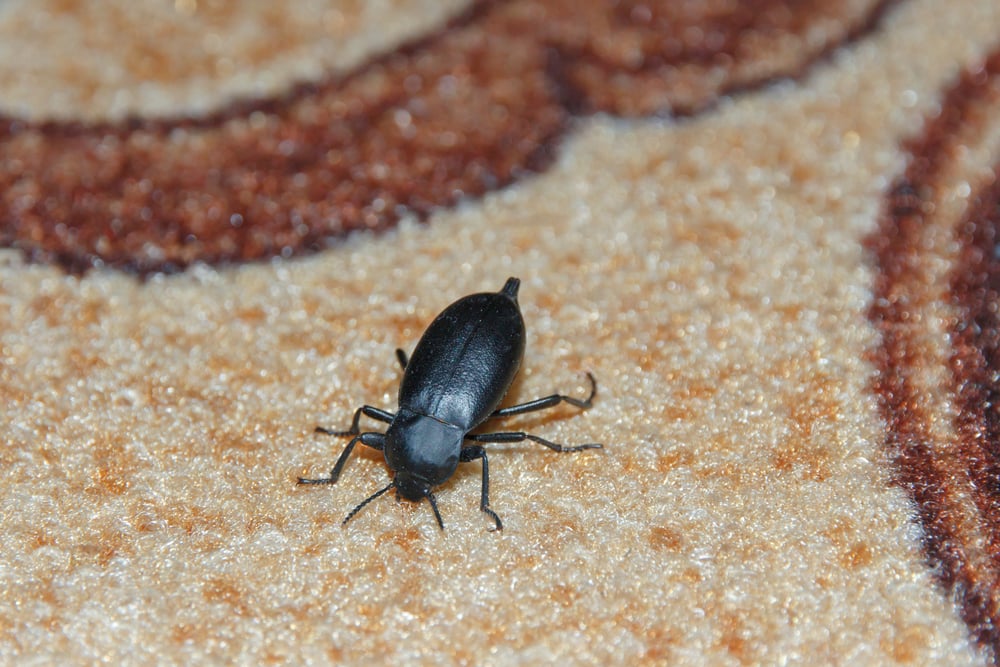
Identifying Characteristics and Facts
- Black Bug that has oval and shiny black. They also have brownish legs.
- Have a body length of about 1/8 to 3/16 inches and a wider body at the rear than at the front.
- Have a complete metamorphosis and can lay up to 100 eggs.
- Are mostly found on windows and screens and are attracted to light.
- Feed on both plants and animal substances.
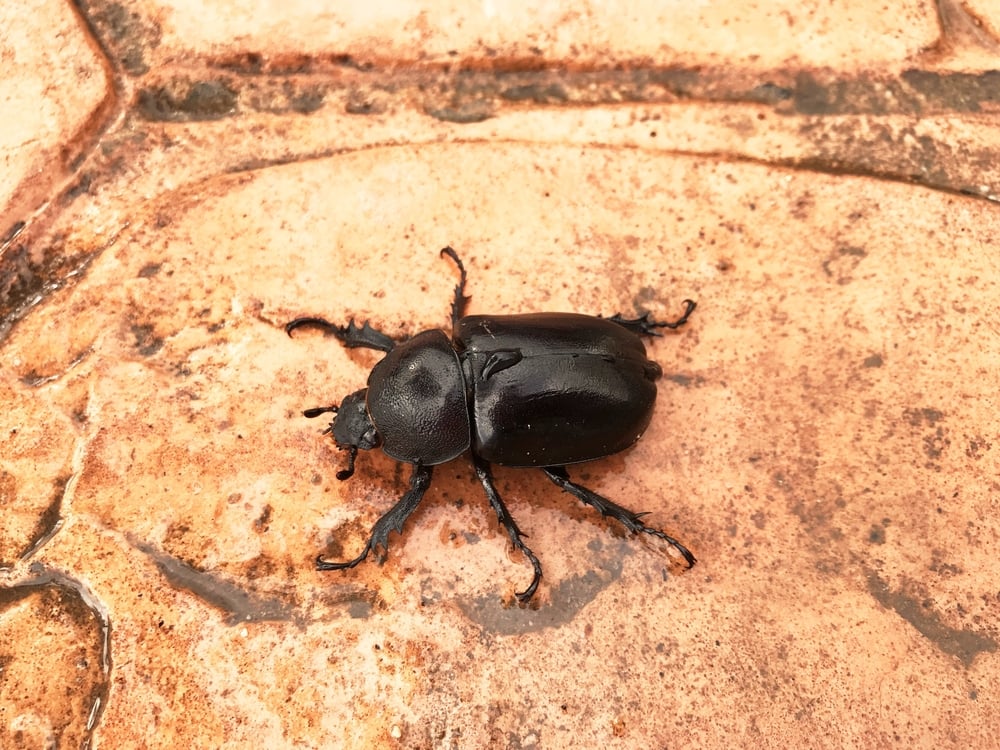
The black carpet beetle is one of the most common tiny black bugs that bite and that you can find in Delaware homes. This insect likes to stay where there is light such as on the screens, windows, or other parts of the house.
The legs of these beetles are well-developed and you can identify them by how slow they move from one point to another.
When it comes to feeding, adult beetles mainly feed on nectar and pollen from flowers while the larvae feed on high-protein foods making this a mostly harmless little black bug in Delaware to humans.
#2. Black Vine Weevil (Otiorhynchus sulcatus)
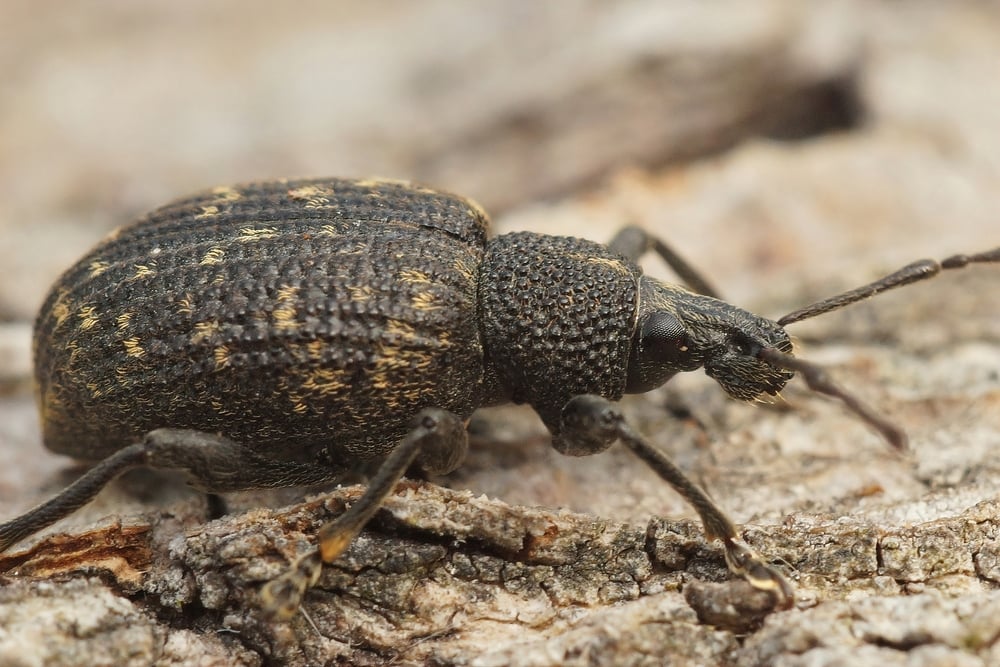
Identifying Characteristics and Facts
- Are about 1 cm in length with short, stout legs.
- Have elbowed antennas and a long snout.
- Have a rough appearance with scales on their bodies.
- Have short wings and hence are unable to fly.
- Feed on garden plants, especially the edges of leaves.
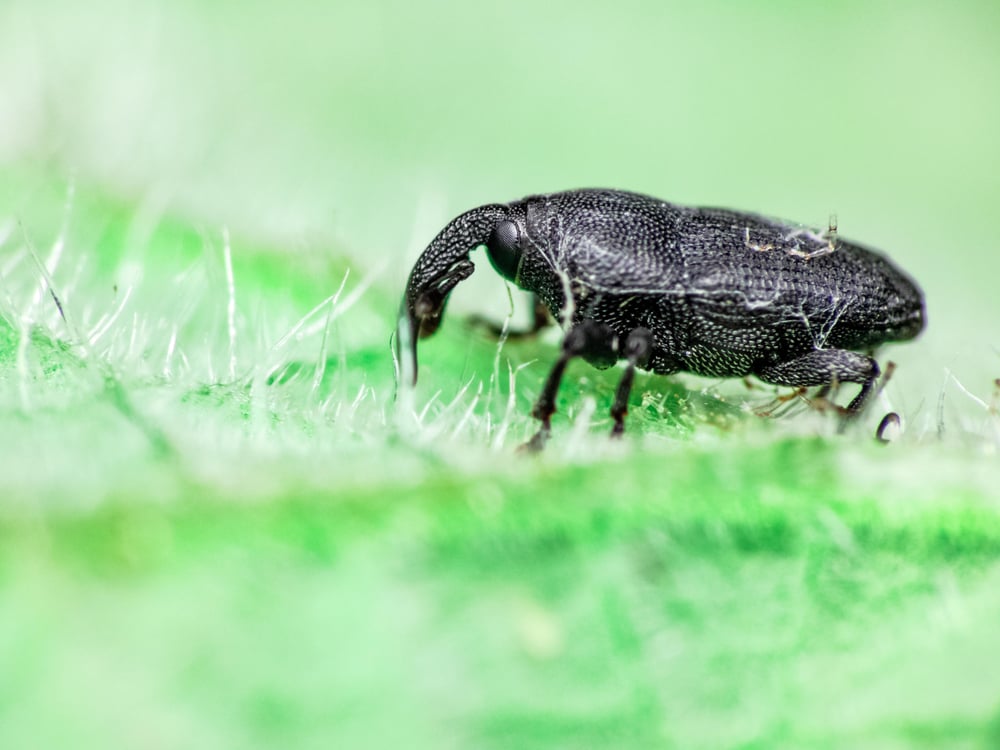
Black vine weevil is one of the common tiny black bugs that bite in Delaware. You will spot them in different ornamental plants since they feed on their leaves.
One thing to note about Black Vine Weevil is that only a few of them survive the winter. Therefore, the few that remain lay eggs, and the adults begin to emerge from around April through May.
It is also important to note that these weevils are destructive. You will note the damage to your ornamental plants along the edges of the leaves as notches.
It is also easy to identify their presence when from their damage that leaves irregular notches on the leaf margins.
#3. Flea Beetles (Altica spp. coleoptera)
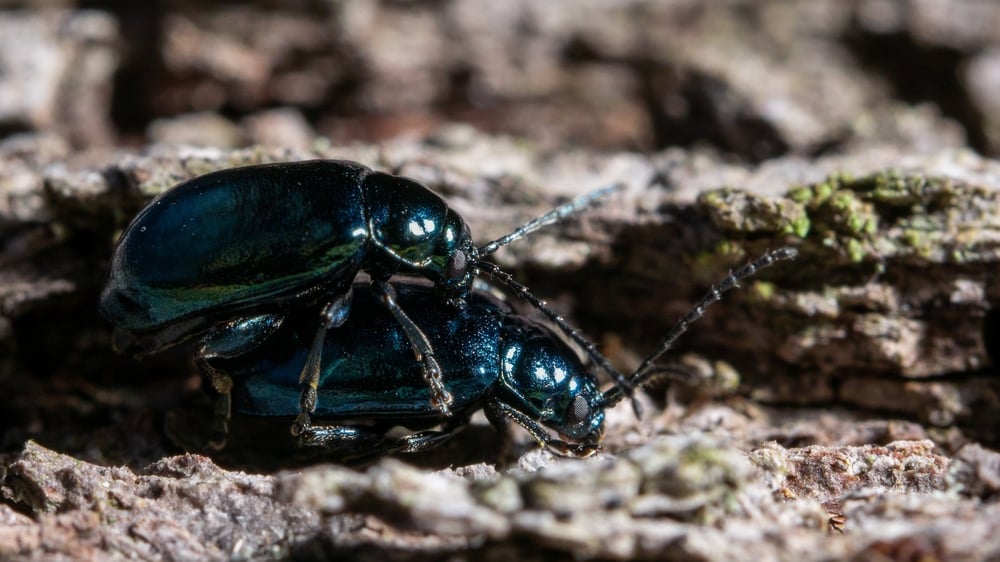
Identifying Characteristics and Facts
- Are about 3 to 9 mm in length with oval-shaped bodies.
- Majorly black but is also available in other colors.
- Slightly curved and flattened and has long legs and can jump just like the fleas.
- Have long and slender antennae.
- Feed on plant leaves.
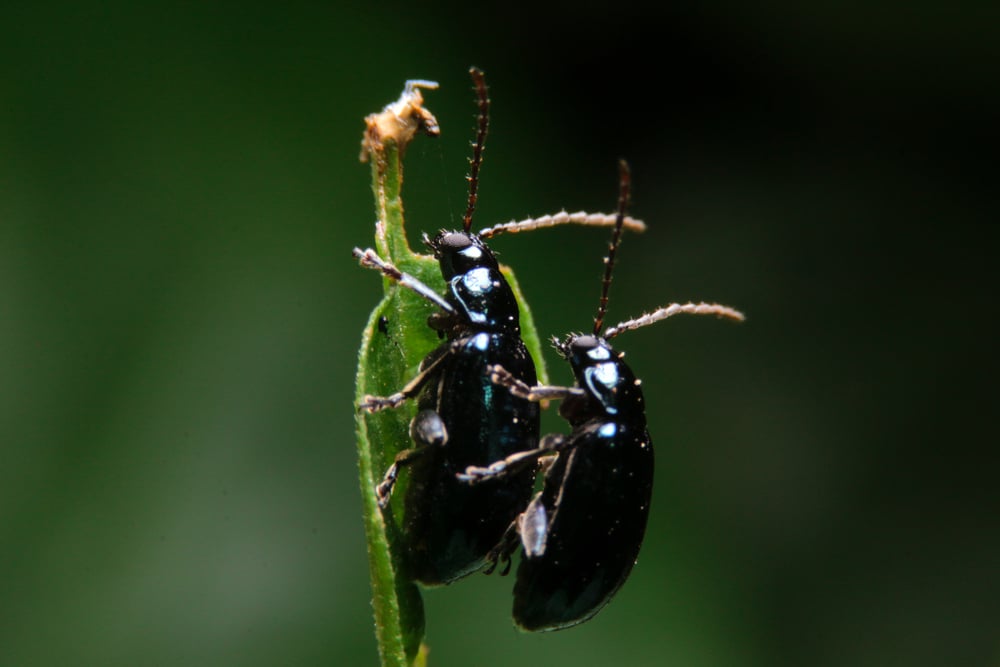
You cannot fail to spot flea beetles in Delaware since they are an incredibly common tiny black bugs that bite. You can see them in garden plants and on different types of other ornamental plants.
The reason why they make plants their habitat is because they feed on their leaves. You will find them eating the leaves and causing some holes in them.
It is important to understand that flea beetles can be disastrous to plants. This is because they can cause great damage and hence the need to control them.
These beetles are all over the place, especially during the spring. During this period, they can cause a lot of damage to plants and can easily defoliate young plants causing a lack of blooms or even worse, death.
Some of the methods that you can use to control include the use of crop rotation, insecticidal soaps and oils, and use of chemical insecticides among other approaches.
- Related: Best Insecticides for ALL Plants
#4. Oriental Cockroach (Blatta orientalis)
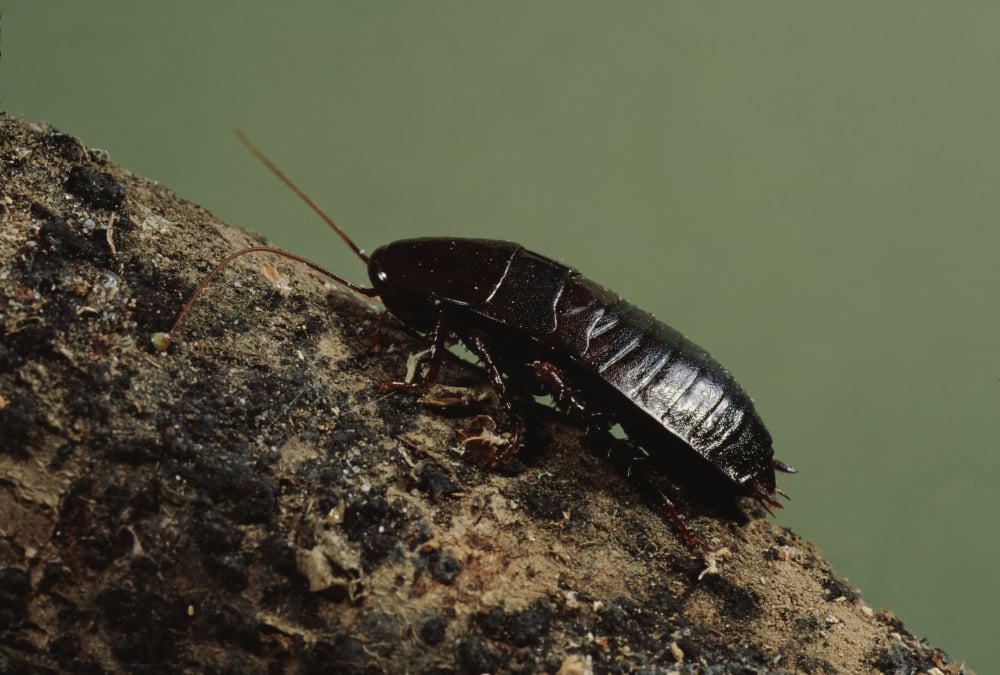
Identifying Characteristics and Facts
- About 1 inch in length with oval-shaped bodies.
- Are shiny black with some being brown and have flattened and broad bodies.
- Have thread-like short antennae.
- Stays in dark and damp environments and produces unpleasant strong odors.
- They are known to move slowly.
- Feeds on decaying matter, garbage, and pet food.
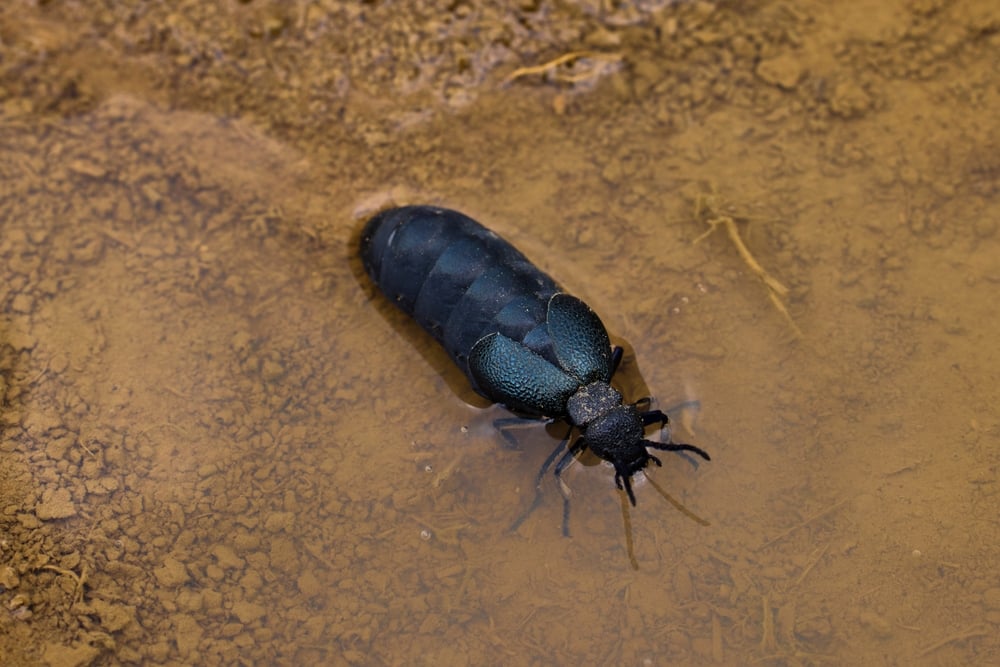
If you live in Delaware then you have encountered this type of cockroach. It is important to identify them since they are a potential risk when it comes to health.
Oriental cockroaches are another tiny black bug that bites in Delaware that is known to spread disease-causing organisms that would pose health risks. They are carriers of viruses and bacteria that can cause some diseases ad illnesses such as salmonella and dysentery.
Because of this, it is important to take control measures to prevent their spread. This includes sealing cracks and crevices in your home, getting rid of moisture and food, and maintaining a clean environment.
#5. Black Carpenter Ant (Camponotus pennsylvanicus)
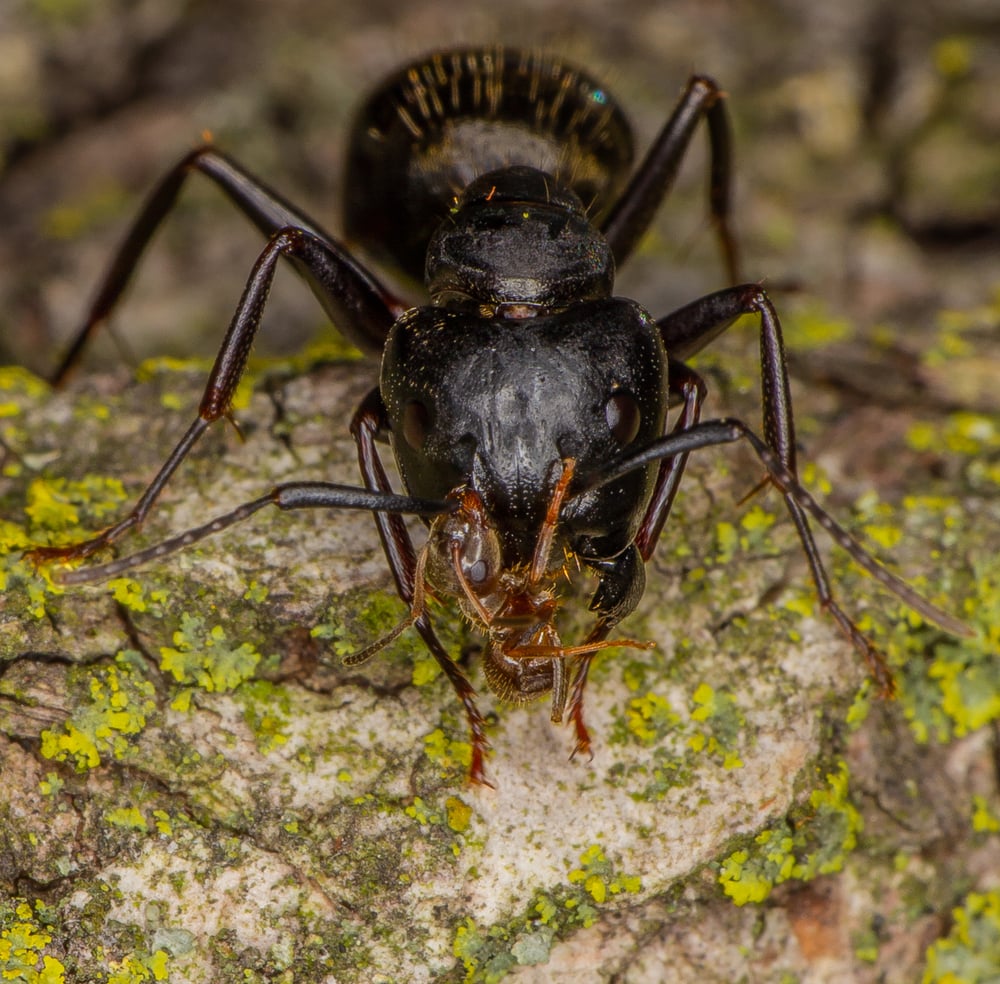
Identifying Characteristics and Facts
- They are large and about 6 to 13 mm long.
- They have a glossy black appearance. and gave a smaller and narrower abdomen.
- Have a large and rounded thorax and powerful mandibles on elongated large heads.
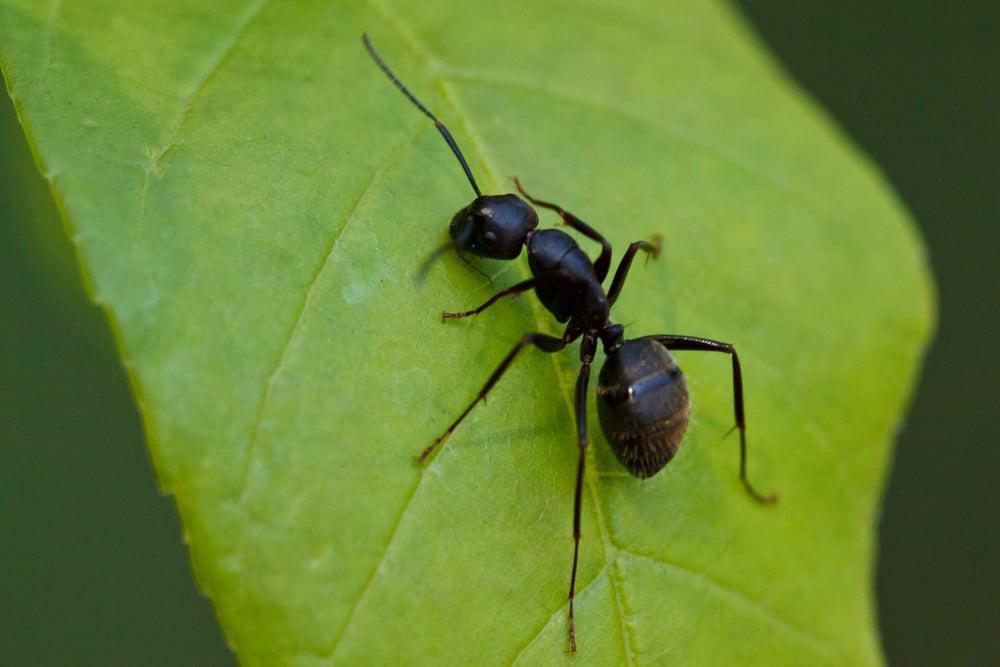
The black carpenter ant is a harmful tiny black bug that bites and that you can find in Delaware. These ants excavate woods where they build their nests but can also infest buildings when they find easy woods to excavate.
It is important to understand that Black Carpenter Ants can attach poles, fences, and even wood of buildings and hence the need to control them.
When it comes to identification, you will find these ants in colonies. They are social insects and within their colonies, they have a queen who lay eggs.
The difference with termites is that Black Carpenter Ants do not eat wood but they excavate it. That means they just bore the wood to build their nests where they stay. That with time can weaken the wood and hence the whole structure gets damaged.
Therefore, you need to eliminate sources of moisture since they need this to survive, then remove food sources, use insecticides, or seek professional help to control their spread.
#6. Black Grass Bug (Labops hesperius)
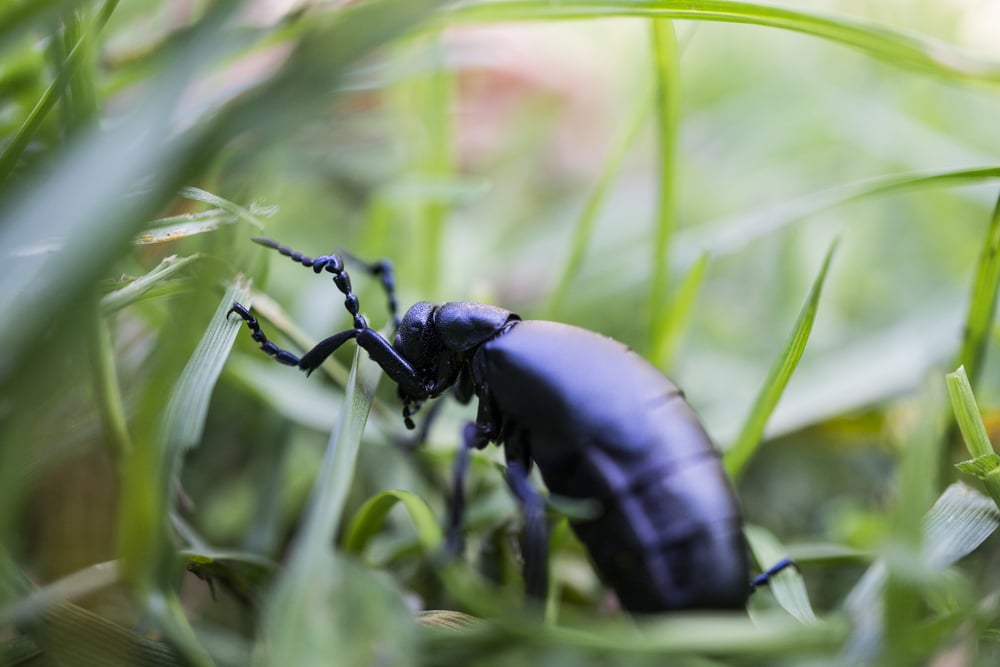
Identifying Characteristics and Facts
- Are medium-sized and about 3.9 – 4.2 mm in length and about 1.6 – 2.25 mm wide.
- Feed mainly on grass.
- Have elongated and black oval-shaped bodies.
- Mostly active during the warm months.
- Have two pairs of wings and two large compound eyes.
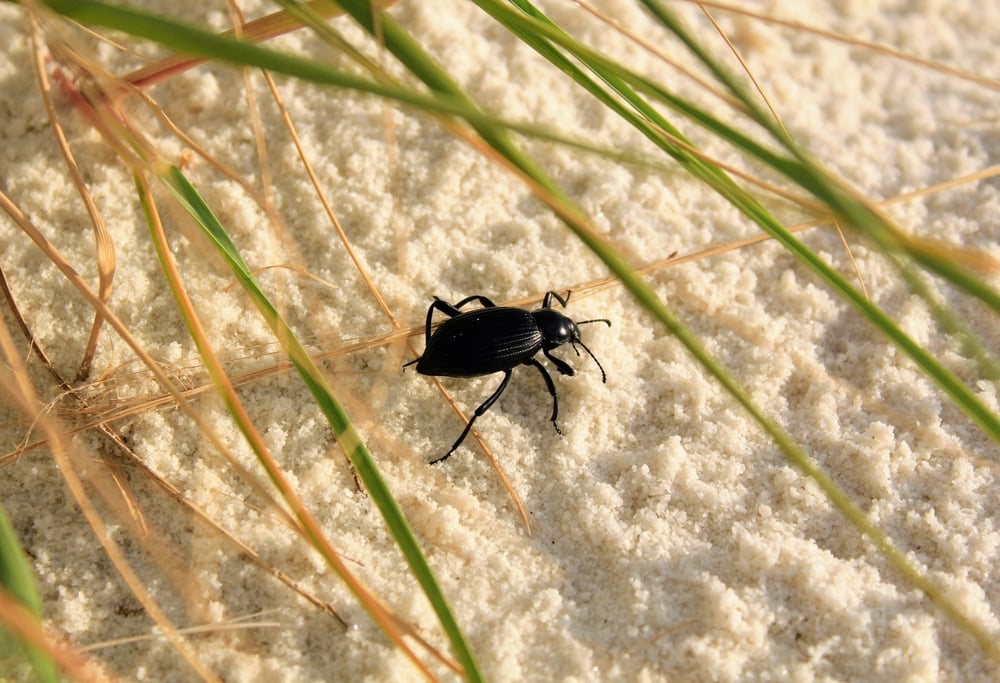
The black grass bugs are common tiny black bugs that bite that are widespread in Delaware and mostly during the spring season. You will find these bugs mostly in the grasslands or meadows or even around your yard.
What you need to know about Black Grass Bugs is that they are destructive pests. The reason they are called grass bugs is because they stay and feed on grasses.
The feeding behavior of these bugs has always been reported to cause huge damage to crops such as barley, oats, and wheat among other plants.
Apart from that, their feeding behavior can stunt the growth of plants hence reducing the yields. It would also be good to know that they also transmit some plant diseases and should be immediately killed when seen.
The knowledge of identifying these bugs is important so that you can help control their spread whenever you spot them. You can control their populations by using insecticides or any other pest management strategy.
#7. Black Legged Tick (Ixodes scapularis)
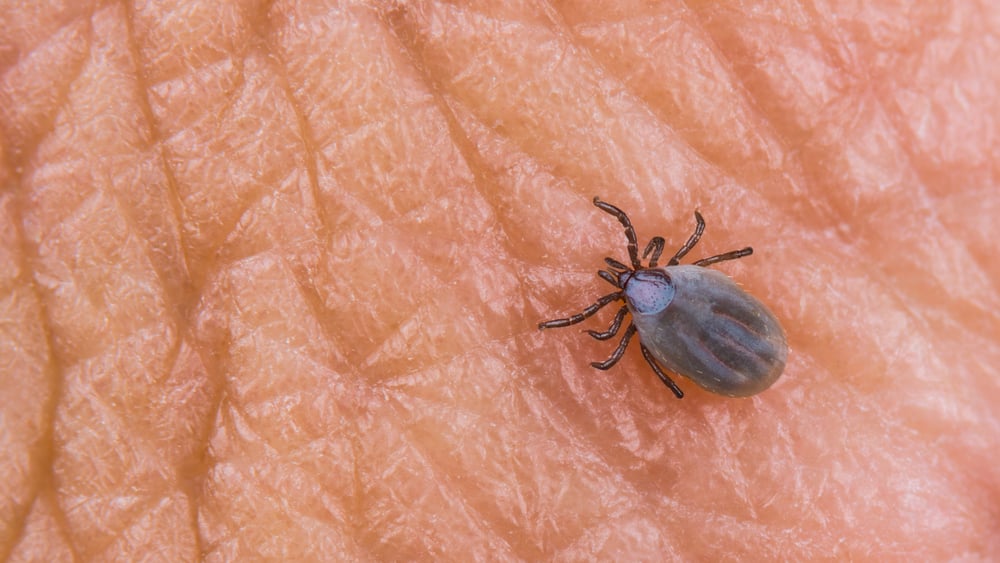
Identifying Characteristics and Facts
- Are small and about 1/8 inch in length with reddish-brown and black legs.
- Females are a bit bigger than males.
- Mostly stays in grassy fields and wooded areas.
- Feeds on a variety of hosts like mice and squirrels.
- Adults feed on their mates before they lay eggs.
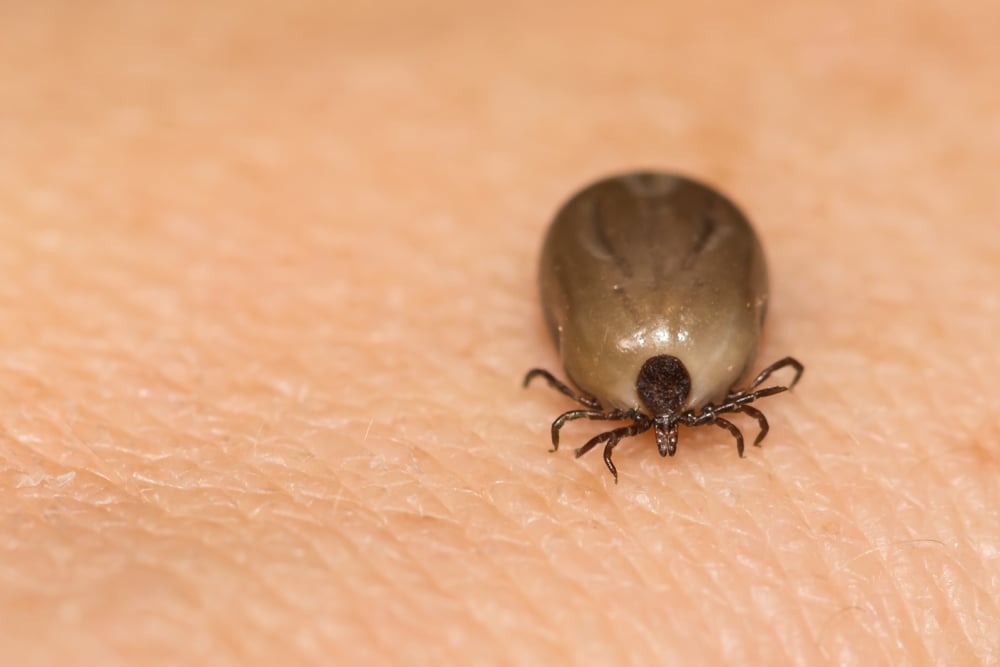
When it comes to identification, black-legged ticks are easy to distinguish from the rest of the bugs. As the name says, they have black legs and brownish bodies.
The black-legged tick is a harmful tiny black bug that bites in Delaware. This tick is known to spread Lyme disease to humans and that has been reported throughout almost all of Delaware.
You will find these bugs in brushy and grassy areas, especially during the warmer months. It is important to also know that these ticks like to stay in areas that have high humidity.
You can also use tick repellents and always trim the grass to help control their spread. Of course, those are just a few methods that work, but are never guaranteed.
#8. Fungus Gnat (Bradysia spp)
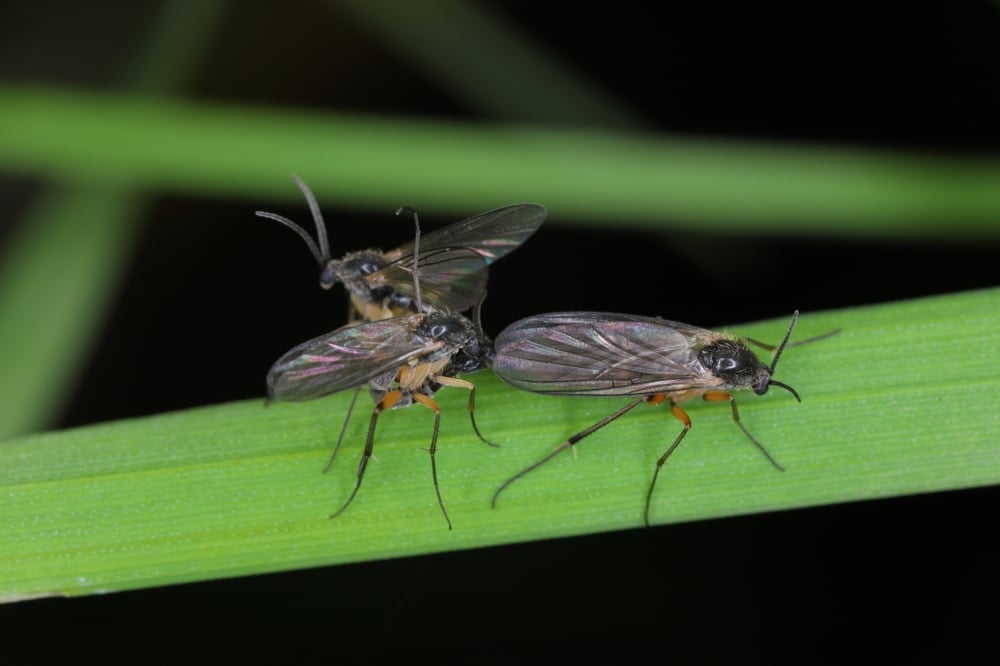
Identifying Characteristics and Facts
- Gray to black color.
- Are about 1/8 inches long in size and have slender and elongated bodies.
- Have complete metamorphosis.
- Mostly active at night and during the evening and mostly attracted to moist environments.
- They do not bite or cause harm to humans.
- Causes significant damage to plants.
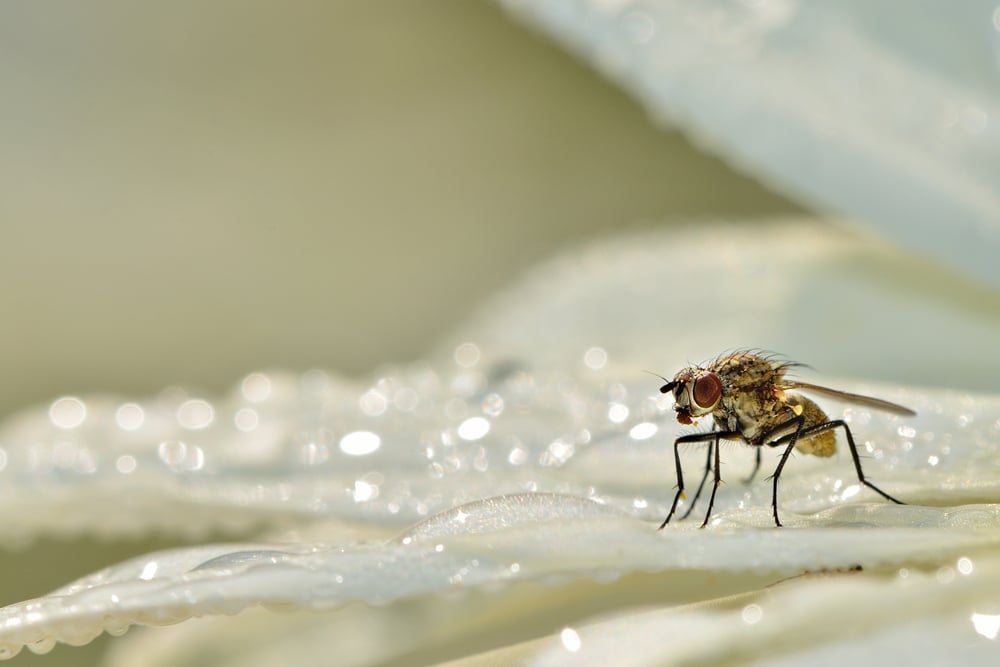
Fungus Gnats are common tiny black bugs that bite in Delaware and you will see these insects in moist environments. This includes places with compost or some decaying matter such as mushroom houses, outdoor garden beds, and potted plants.
One thing about fungus gnats is that they are destructive insects that you need to control to prevent losses. The larvae can eat the roots of plants and hence can stunt their growth or even cause them to die.
Therefore, once you identify their presence, it is important to take control measures to prevent their spread. Of course, you may also want to use biological methods such as introducing predatory mites.
#9. Black Garden Ant (Lasius niger)
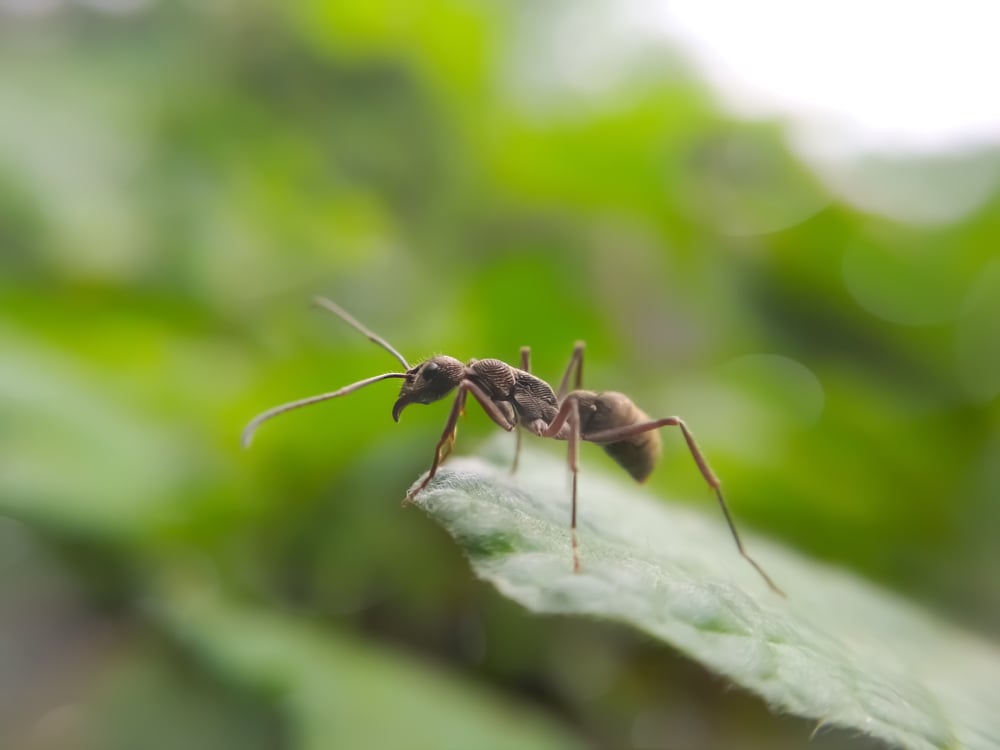
Identifying Characteristics and Facts
- Are about 3 – 5 mm in length with a black or dark brown appearance.
- Have delicate wings.
- Feeds on plants and animal substances.
- Are found in different habitats mostly in gardens.
- Live in large colonies with a queen leader.
- They mate during summer.
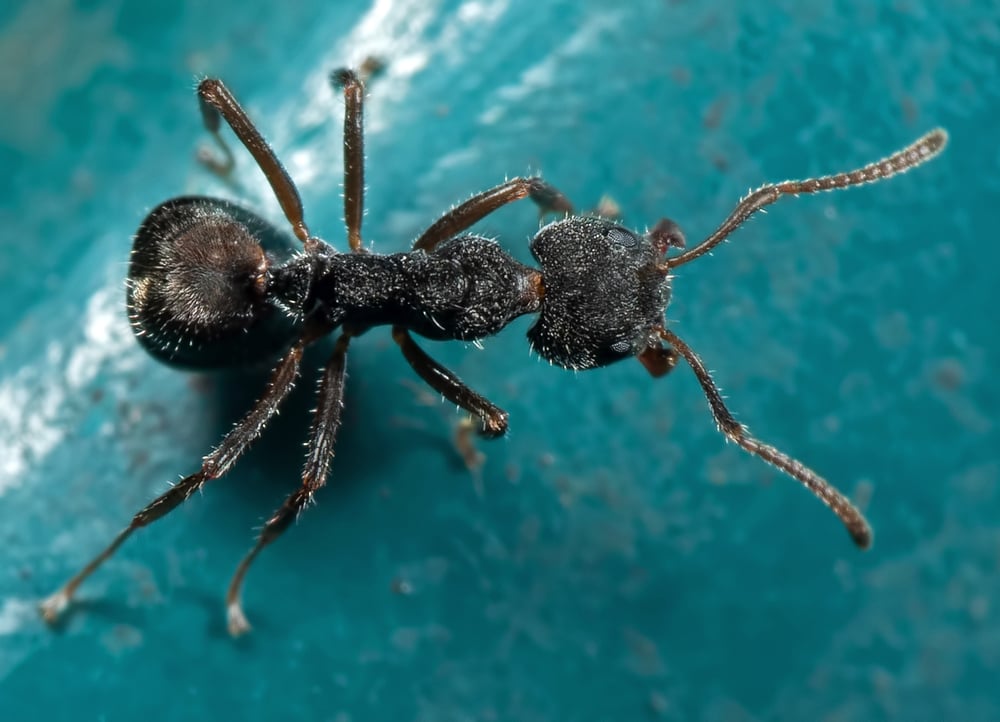
As the name puts it, you will see these ants mostly in the gardens. They like to stay in areas where they can easily find their food.
One interesting fact about the Black garden ant is that after mating in summer, the males die and the queen then establishes the new colony. Not only that, but this is one of the most common tiny black bugs that bite in Delaware.
In addition to that, the black garden ants have been known to work together. They establish strong territories, build strong and complex nests together, and forage for food together.
Unlike other bugs, Black garden ants are not such destructive. They are, in fact, helpful in aerating the soil and don’t cause significant damage to plants.
#10. Ground Beetle (Carabidae spp)
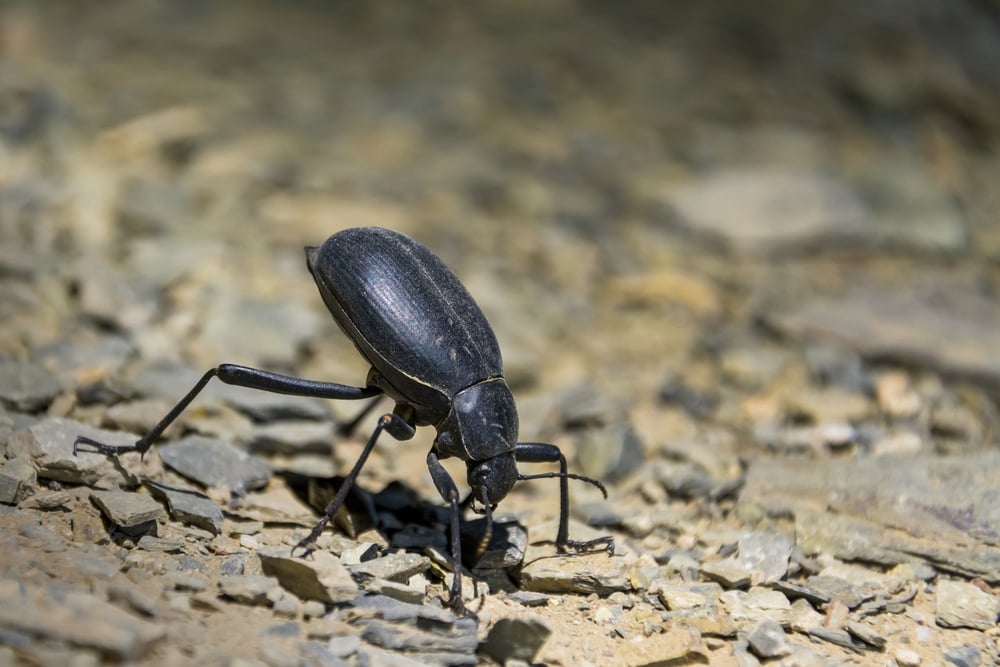
Identifying Characteristics and Facts
- They have shiny black bodies and have long and powerful legs.
- About 1/8 to ½ inches in length and are flattened with mandibles.
- Mostly active during the night.
- Are primarily carnivores.
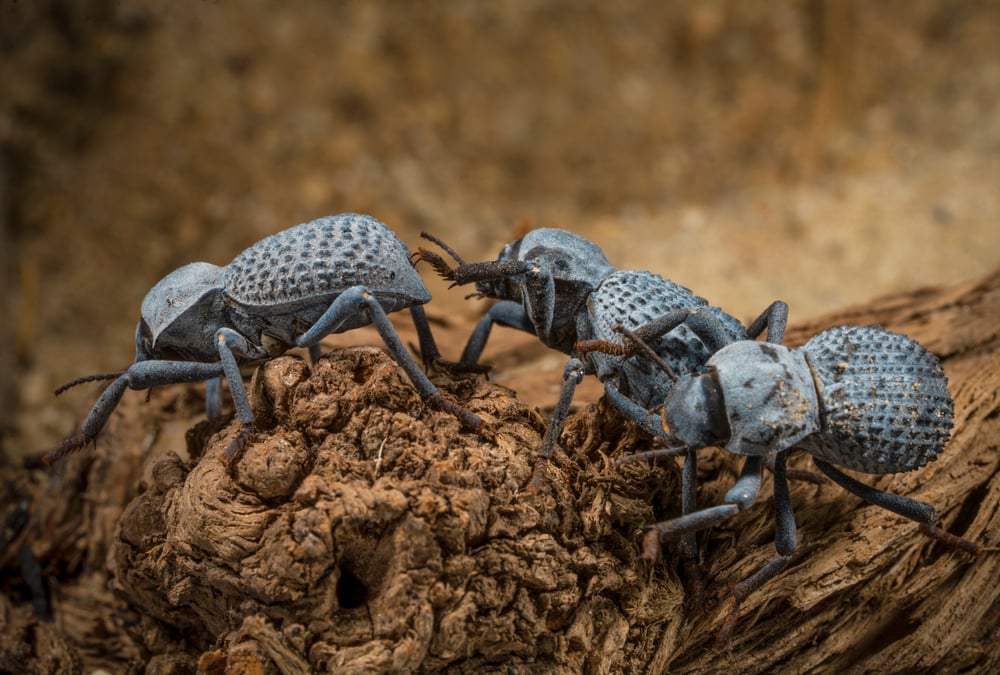
Ground beetles are some of the common tiny black bugs that bite in Delaware that you can find in moist environments. Therefore, if you want to spot them, you can check under the logs or rocks.
They also love to stay in different habitats be it forests, grasslands, and even in the wetlands so long as their conditions are met.
These bugs can move very easily through the cracks and have shiny black bodies. You can easily identify them due to their color and body shape.
They are known to be carnivores and hence feed on spiders, insects, and some other small invertebrates.
Also, these bugs are mostly active at night, and during the day, you will find them hiding under logs, debris, and under soil.
It is also worth noting that ground beetles are helpful in the ecosystem. They help in controlling insect populations hence the overall health balance of the ecosystem.
Common Factors of the Most Common Tiny Black Bugs that Bites in Delaware
As a reminder, the below factors are common for the most common insects:
- Most can be found in your house, yard, or garden
- Most are not harmful to humans or pets but can be annoying and cause irritation
- There are easy ways to attract and deter common tiny black bugs that bite in Delaware
- Most of these common tiny black bugs that bite can be easily removed or killed.